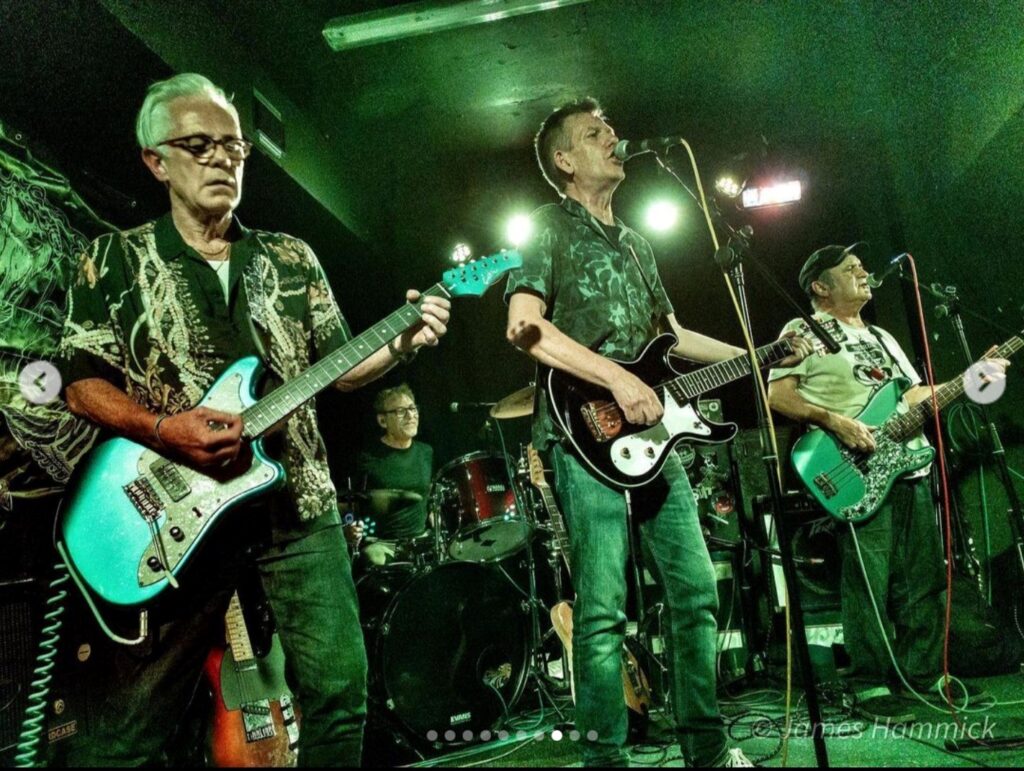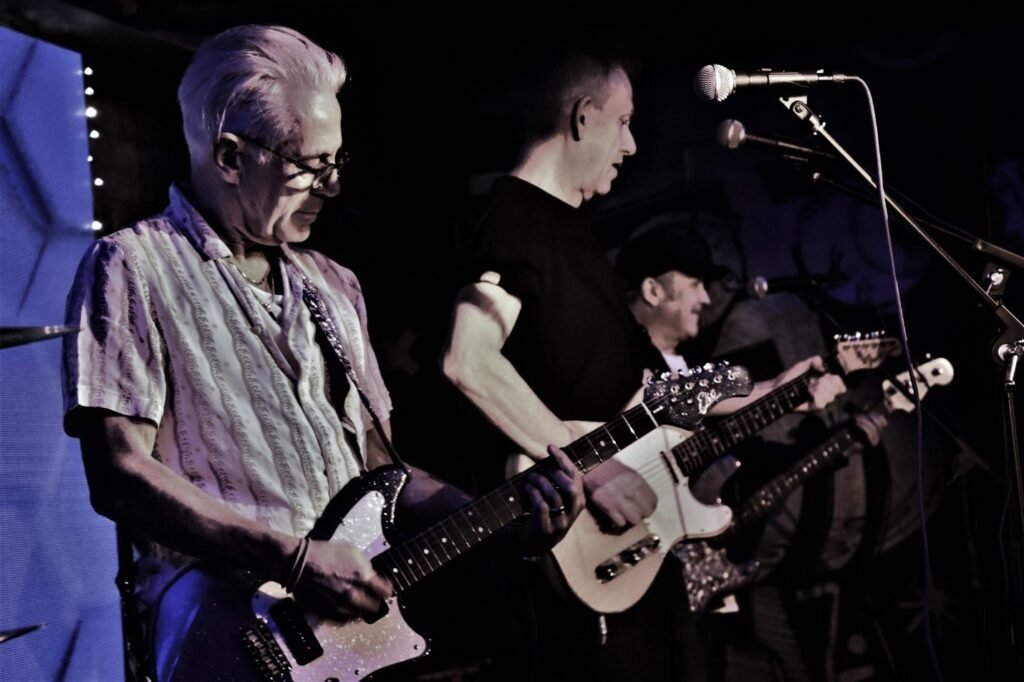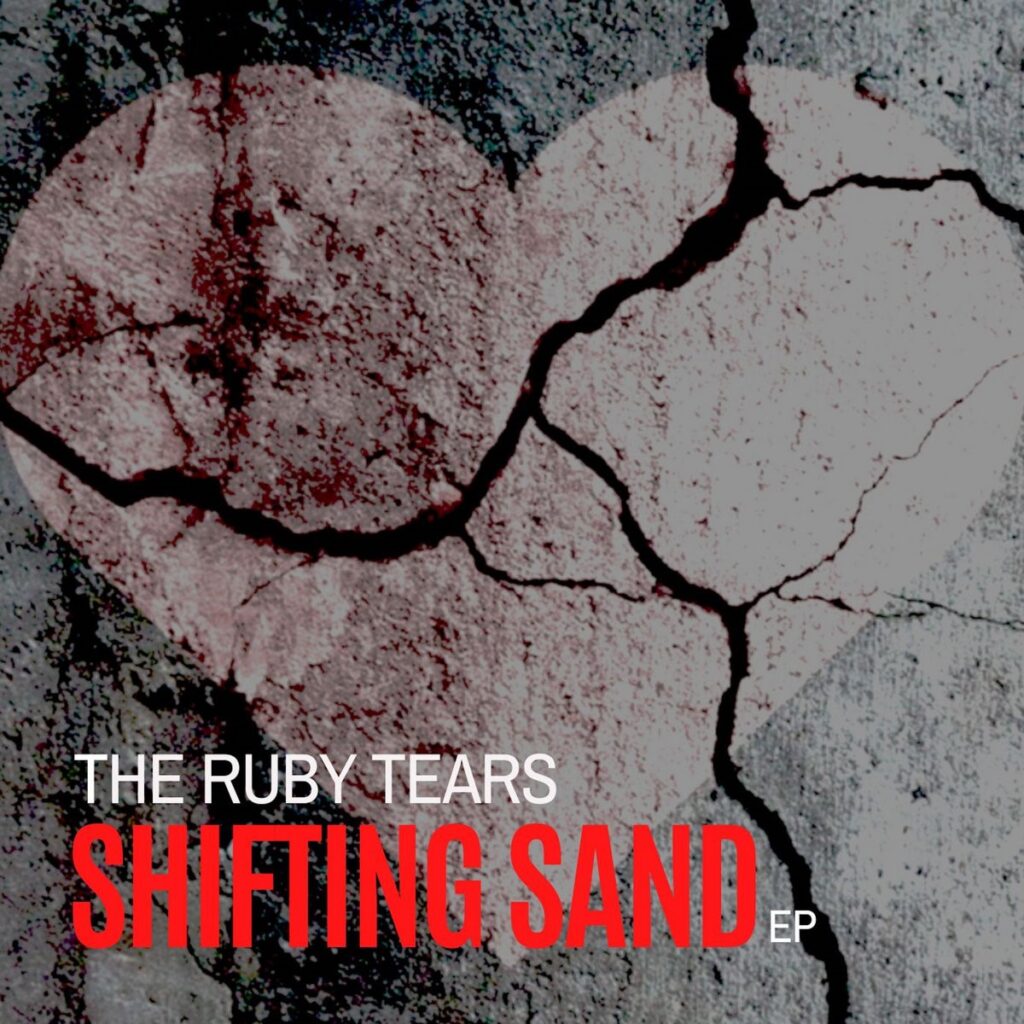A result of the strangeness of the initial Covid Lockdown, The Ruby Tears is currently the result of an entirely online collaboration between Liverpool guitarist and songwriter Jeff Skellon and Manchester solo musician John Goodfellow. Back in Liverpool a year ago, Jeff was unemployed due to Covid but had some free time on his hands. He made the grand decision to compose and record an album. One year after beginning the collaboration with Manchester-based musician John Goodfellow, another like-minded musician, they had written, recorded, and released 15 original songs in addition to a cover song. More are planned, and once venues reopen this summer, the next step is to perform live. The late 1960s, 70s rock, New Wave, and 80s post-punk have all influenced us. At some point, all the positive aspects of that era will be heard in their music. Bowie, The Clash, and Burt Bacharach can occasionally be heard on the same track, as can The Byrds and Elvis Costello. Check out the exclusive interview and their EP ‘Shifting Sand’ below:

1. Can you tell us a bit about where you come from and how it all got started?
THE RUBY TEARS: Jeff Skellon: Once lockdown started, we found that we had all the time to make music but nobody to make it with so we found each other on the internet. As it happened we were from the neighbouring, some might say, rival cities of Liverpool and Manchester. We weren’t sure what we were doing or why at first but then by the time we had written three songs, we just though let’s put them out as an EP and of course we needed a name so The Ruby Tears were born.
John Goodfellow: I’m regionally from Richmond in North Yorkshire but have been based in Manchester for the past 25 years.
Jeff and I first started writing and recording remotely (sharing files and working on our own home studios) at the start of lockdown in 2020. He was looking for someone to come up with lyrics and melodies for songs he had already recorded. We didn’t actually meet until the Summer of 2021.
2. Did you have any formal training or are you self-taught?
THE RUBY TEARS: Jeff: No formal training at all, I was a bassist back in the eighties but always could play guitar a bit as well. I left playing seriously for many years and when I came back to making music, it didn’t matter too much whether I played guitar or bass and I went with guitar. I’m not a natural lead guitarist but I think because of that, I come up with simpler melodic parts which suit my ability.
John: I’m completely self-taught. I don’t read music but am blessed with a good ear.
3. Who were your first and strongest musical influences and why the name ‘THE RUBY TEARS’?
THE RUBY TEARS: Jeff: Ruby Tears was the title of one of the songs on the first EP and after knocking a few other ideas about it just stuck. We weren’t really planning anything more than writing the next songs at first so the name wasn’t important. After time it seemed to fit, as it is the sort of name a band might have had on Stiff Records back in the day. We discovered by about the third ep that we both were influenced by bands such as The Clash and Elvis Costello but Bowie and Slade have always been an influence to me since I first heard them as a kid. (https://open.spotify.com/album/6qrSobnxBOkxOeR8odqNl9?si=h0VzaTgkRlSMtoW5JjrqoQ) I think that the covers we have done have expressed some of our musical influences best. Obviously the original itself was already an influence but when you hear the Jesus and Mary Chain produced by Phil Spector covering Brinsley Schwartz and The Only Ones covering The Flaming Groovies through a rose coloured filter of the summer of love, you know that we are much more than a band who try to hide behind our transparency.
4. What do you feel are the key elements in your music that should resonate with listeners, and how would you personally describe your sound?
THE RUBY TEARS: Jeff: We wear our influences on our sleeves, in any handful of songs you might hear elements of Punk, New Wave and Post Punk but there are moments of great songwriting in there too and you’ll also hear Lloyd Cole, Elvis Costello and Burt Bacharach. We have a lot of fun making the music and a lot of fun playing the songs live.

5. For most artists, originality is first preceded by a phase of learning and, often, emulating others. What was this like for you? How would you describe your own development as an artist and music maker, and the transition towards your own style, which is known as Post Punk Pub Rock?
THE RUBY TEARS:
Jeff: When I first was in a band, I was very much trying to emulate my musical heroes at the time, Simple Minds, Japan, Heaven 17, Fashion and Bowie but I was nowhere near as good as those musicians. Years later I feel I can take influences as far and wide as Burt Bacharach and The Stranglers, The Damned and The Clash and still make something original but with a nod to the greats that inspired us.
6. What’s your view on the role and function of music as political, cultural, spiritual, and/or social vehicles – and do you try and affront any of these themes in your work, or are you purely interested in music as an expression of technical artistry, personal narrative, and entertainment?
THE RUBY TEARS:
Jeff: Pop music has always had a function to educate as well as entertain. All four of us are socialists but you won’t hear our politics in the music. We are not trying to start a revolution, though god knows there needs to be one. Some of the best songs are revolution songs but our output is aimed at being entertaining first. I think we do touch upon the subjects that have mattered to us all in one way or another, love and loss, life and death.
7. Do you feel that your music is giving you back just as much fulfillment as the amount of work you are putting into it or are you expecting something more, or different in the future?
THE RUBY TEARS:
Jeff: Personally, I feel that the writing process, coming up with an end product which didn’t exist before we put our minds to it, is fulfilling in itself. Playing live is also fulfilling but sometimes I enjoy the practices more as the pressure is off. Live can get a bit stressful sometimes. We are always just happy for any reaction whether it is being added to a playlist across the world somewhere or just someone down the front at a gig bopping away.
8. Could you describe your creative processes? How do usually start, and go about shaping ideas into a completed song? Do you usually start with a tune, a beat, or a narrative in your head? And do you collaborate with others in this process?
THE RUBY TEARS:
John: Jeff and I are still writing as we did when we started – although now we can rehearse them up for live gigs with a real band. One or other of us will come up with the bones of the backing and share it the files. It’s then it is down to me to write the lyrics and record the vocals (I might also add some further instrumentation). We then bat the project back and forth, making changes and adding stuff, until we are happy with it.
Jeff Skellon: Either John or I usually come up with the full structure of an instrumental piece but structured into verse, chorus, bridge, middle 8 sections. Then John adds a vocal melody and lyrics and we bounce the files between us. We have never sat down in the same room to write together, I don’t think we would know how. The process has seen us complete 20 original songs so if it is not broke…Once we have them written we go into rehearsal with Mark (drums) and Jim (bass) to knock them around and make them more comfortable for us to play as a four piece. Their input is essential as they bring their own influences in and come up with things that John or I would never think of.
9. What would you consider a successful, proud or significant point in your life or music career so far?
THE RUBY TEARS: John: I am very proud of everything we’ve achieved – particularly managing to create such a body of work from the restrictions of Covid lockdown. My personal favourite gigs were our debut live show at Jimmy’s in Liverpool at the start of the year and our first London gig at the Dublin Castle in Camden.
10. With social media having a heavy impact on our lives and the music business in general, how do you handle criticism, haters, and/or naysayers in general? Is it something you pay attention to, or simply ignore?
THE RUBY TEARS: John: I think Social Media is crucial for a band like ours. We’re lucky to have dodged any critical stuff online but it is an invaluable tool for keeping everyone updated with what the band are doing.
Jeff: Having said that, there could always be more positive responses and I guess a lack of them could be construed as a negative reaction. I don’t know really, we started this to keep ourselves occupied during lockdown and 2 ½ years later we are a gigging band, we have only really ever done it for ourselves so as long as we are still enjoying it, we will keep it going.
11. Do you think is it important for fans of your music to understand the real story and message driving each of your songs, or do you think everyone should be free to interpret your songs in their own personal way?
THE RUBY TEARS: John: I don’t think I need our fans to know exactly what I’m saying in a song but I think the themes are pretty obvious and familiar.
Jeff: We have never tried to put any strong message or meaning into our songs. That is not to say that John doesn’t think about the lyrics but it is just pop music. Pop music has been my constant companion since as long as I can remember and if we can travel part of the journey with a few other like minds, then we are onto a winner.
KEEP IN TOUCH:
FACEBOOK | INSTAGRAM | TWITTER | SPOTIFY | BANDCAMP | YOUTUBE

Photo credits: Adrian Wharton, Nick Davies, Billy Vitch Photography, James HammickPhoto credits please: Adrian Wharton, Nick Davies, Billy Vitch Photography, James Hammick
